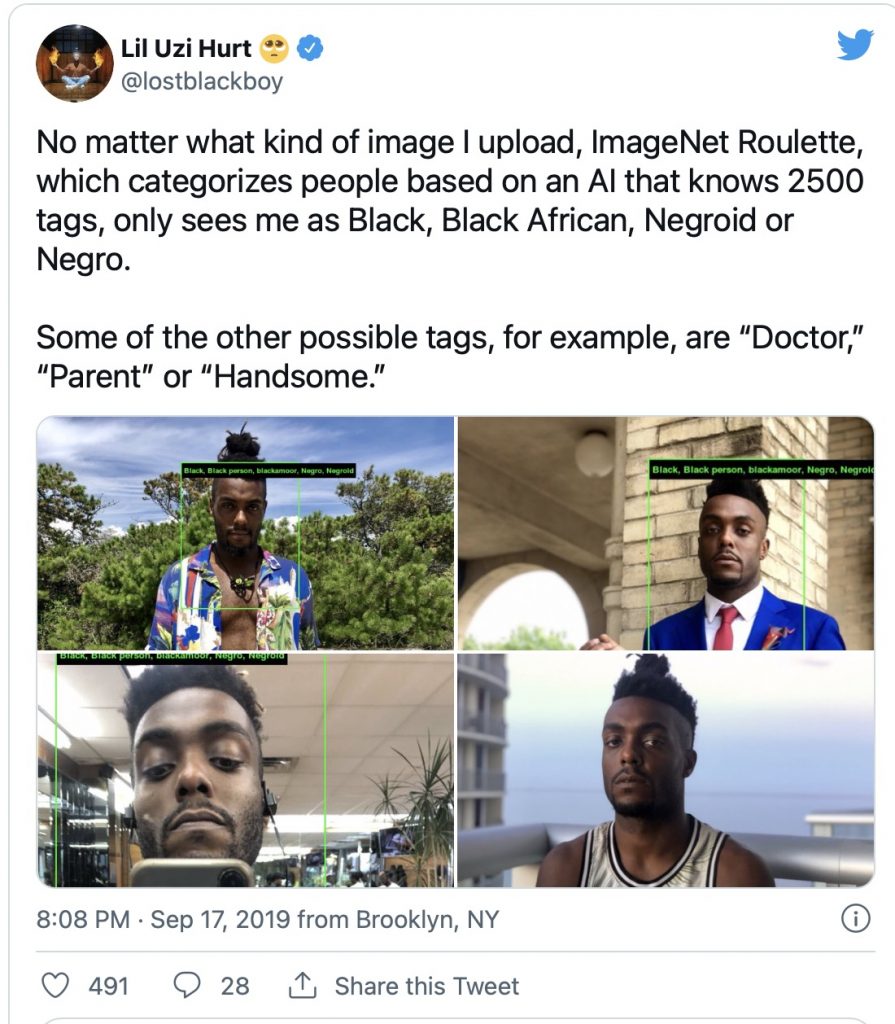The article I chose to read is called “NFTs Are Shaking Up the Art World—But They Could Change So Much More”. It basically discusses the issue of artists selling their art work on NFT to make money and generate impetus for them to do more work. I think it is about the issue of copyright. Since the art works can be freely used on internet without generating any money flow between the users and artists who created the arts, it is a great change for artists to feel that their work is valued and has given them something in return to support them do more creation. It is quite crucial for artists to find their work value and meaning of existence, which could not be shown without the existence of NFT. NFT not only provides artists with significant income, but also the proof of ownership and authenticity.
Category: LookingOutwards-11
Looking Outwards 10: Biases
The article “Art Project Shows Racial Biases in Artificial Intelligence System” spoke about ImageNet Roulette, which is an artificial intelligence tool that classifies images of people with different tags, such as politician, doctor, father, newsreader, etc. The tool was created by Trevor Pagan and Kate Crawford specifically to reveal “how layers of bias and racism and misogyny move from one system to the next.” (Pagan) The creators were using this project to reveal how ImageNet, which is use to train many artificial intelligence systems, inherently has racist biases.

The structure of this project was quite effective, as it revealed how so many of the systems we use have biases built into them, which often leads to significantly detrimental effects. Reading the article makes me wonder about to what extent the other systems we use have racial bias built into them – infrastructure, social media, architecture, etc. However, it’d be harder to reveal the inherent biases in physical systems like infrastructure, since there isn’t a pool of data you can pull from like in the case of artificial intelligence learning systems. Regardless, it’s important that we reveal the racial biases that are entrenched in our society. We can’t build future systems that are equal without changing our current ones.
![[OLD SEMESTER] 15-104 • Introduction to Computing for Creative Practice](../../../../wp-content/uploads/2023/09/stop-banner.png)